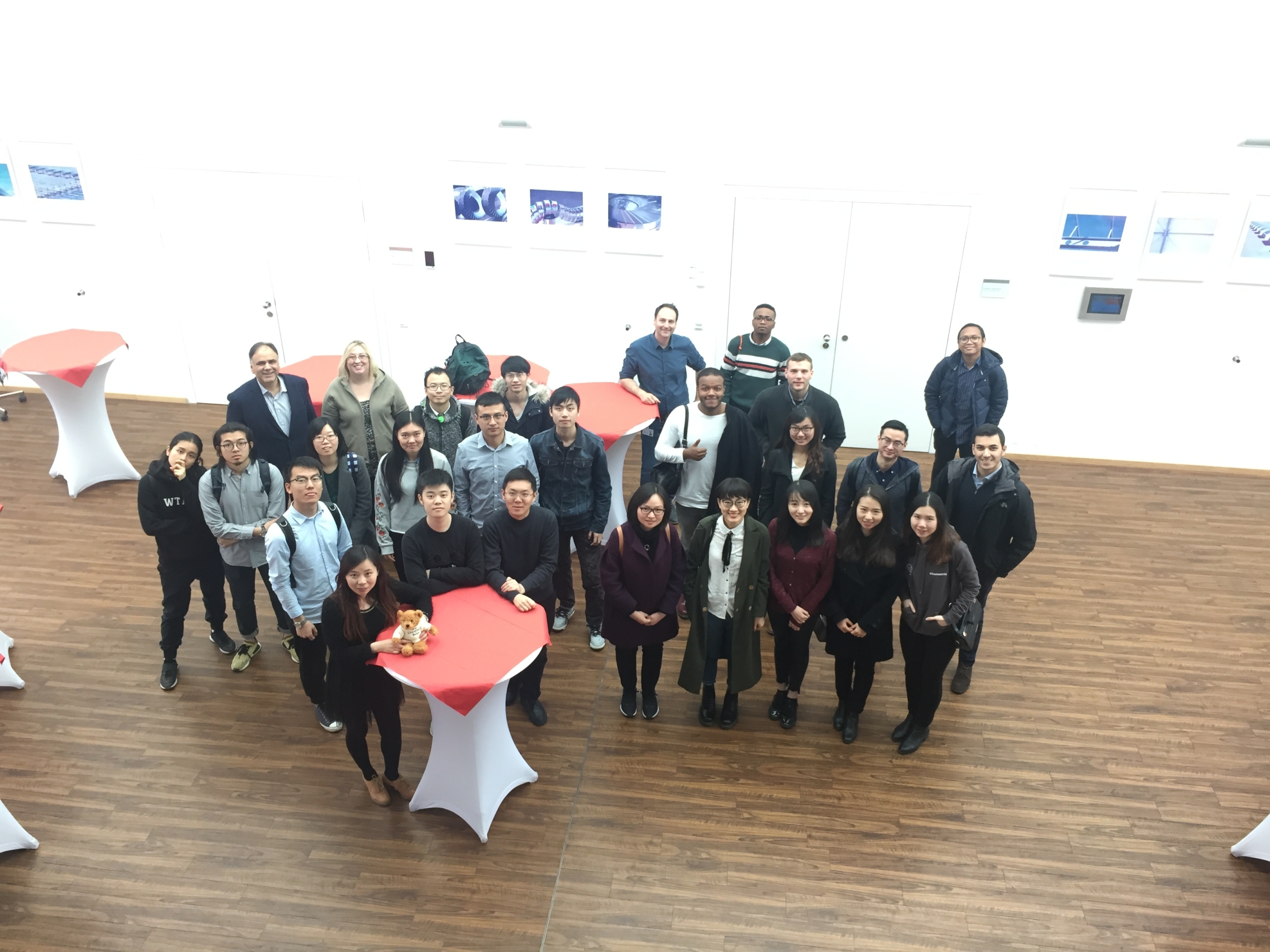Logistics and Procurement Supply Chain study tour – Vienna, day two
25/04/2017

Hi everyone!
Day two of our study tour was quite exciting. We traveled to Fronius International and the BMW Engine plant.
The roads on day two were covered in snow. It’s completely white. We took the coach from the hotel to Fronius International in Sattledt. We had a short introduction to the company and a plant tour. This plant produces battery charging systems, welding systems and solar inverters. They have developed a sustainable program which is called “24 hours of sun vision”. The emphasis is on making renewable energy more accessible and replacing coal, electricity and nuclear. The question is how can we do that? The sun is the key part of the solution since it provides 8000 times the energy needed directly to the planet. However, the problem is cost and solar infrastructure. One student in our group raised a good question regarding how to persuade people to use renewable energy when it is more expensive. The answer is that some people just want it. Similarly to why we buy an iPhone over a cheaper phone – we just want it, not necessarily because it has financial value.
Moreover, we have learnt more about how digital transformation has changed the supply chain at Fronius. The key success factors are customers and suppliers. The whole thing starts from the customer purchase order in Electronic Data Interchange (EDI) which will translate Enterprise Resource Planning (ERP) from customer to the ERP of the company. Many activities in the company are done through e-platforms such as procurement, invoicing and credit notes, which are paperless and help to facilitate these business processes. In their warehouse, the company have IWACS vs Manufacturing Executing System (MES) – increased machine utilisation and maintenance programmes.
In the afternoon, we headed to the BMW Group Plant in Steyr. This plant is where BMW Group’s diesel engines are developed, as well as its three, four and six-cylinder diesel and petrol engines. On average, an engine will roll off the assembly line every 14 seconds. Eighty percent of the processes in this manufacturing plant are automatic. And to avoid mistakes on the assembly line, they use pick-to-light systems which will direct staff to which part is needed. After assembly, the engines have to pass premium quality tests.

Fronius International Plant with solar panel on the roof top
 .
. 
Plant tour and Q&A session



Dinner time@ Saloon 5
Categories & Tags:
Leave a comment on this post:
You might also like…
From Sri Lanka to Cranfield: How a Commonwealth Scholarship transformed my environmental engineering journey
Hi, I’m Kavithanjali Uthayashangar and I’m here to tell you about my journey into environmental engineering. It began with a simple but powerful motivation: a desire to understand how engineering can ...
Inside the Air Transport Management MSc: Classes, assignments, and group project work
What’s it really like to study Air Transport Management at Cranfield? Adit walks us through a typical day, assignment expectations, and the excitement of hands-on group projects. This is the second of three blog ...
Using Factiva to research a company
If you’re tasked with researching a company, your first port of call might be to search Fame or EBSCO Business Source Complete. Your immediate reaction might not be to look at Factiva. However, for larger ...
How do I write a secondary reference … in the NLM style?
Secondary referencing is used when you’re reading a work which includes a quotation from another author, and you – the researcher – can’t obtain the original source. We always advise, where possible, to try to ...
Reaching new heights: How a Global Excellence Scholarship fuelled my aerospace dreams
Leaving my home in India to pursue an MSc in Aerospace Dynamics at Cranfield University was a leap of faith. Hi, I’m Oliza Kachroo and as an international student, the transition ...
How do I reference…when delivering a presentation?
Just as you cite and reference sources in written work, you should also acknowledge the sources you use or quote in oral presentations. Citing your sources in presentations provides your audience with information about the ...






